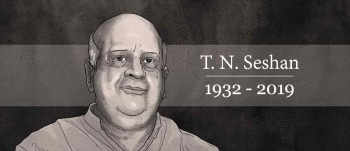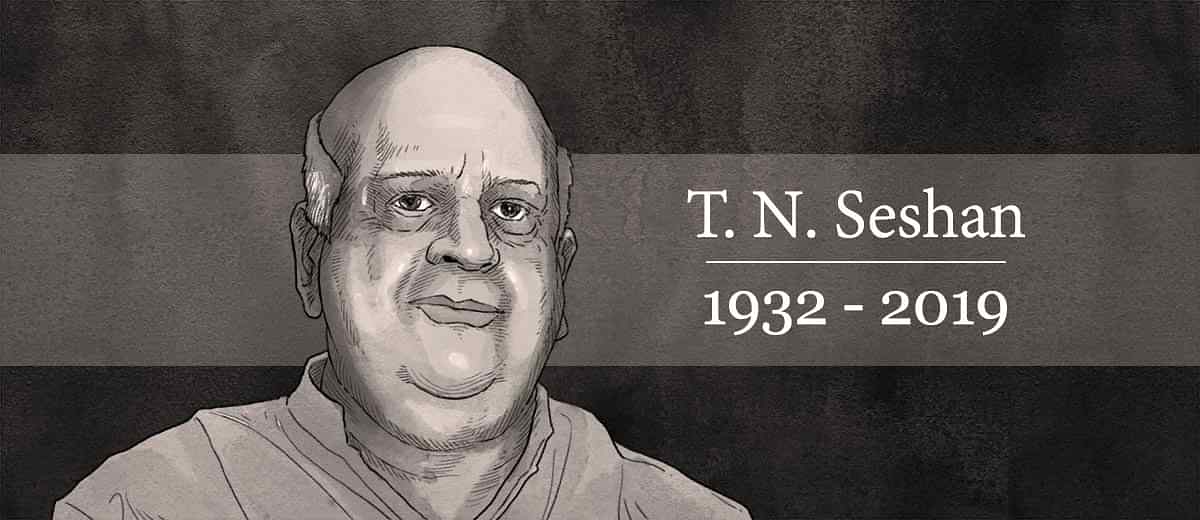
.jpg) Dr. M. D. Thomas
Dr. M. D. Thomas

The ‘High Court of Calcutta’, I am sure, caught the attention of the entire country, and even much beyond, on 22 April 2021, for having given a ‘slap on the wrist’ of Election Commission of India, as regards its failure in the ‘enforcement of corona health safety norms’ during the ongoing process of West Bengal Assembly elections.
In response to the public interest litigations (PILs) concerning the matter above, a Division Bench presided over by Chief Justice T. B. N. Radhakrishnan sharply affirmed that the ‘issuance of circulars and holding meetings on corona safety’ were not enough. Further on, the Chief Justice ordered an ‘affidavit by the ECI’ on steps taken to enforce the norms.
The PILs brought to the attention of the court that ‘people participating in the ongoing election campaigns were not holding on to the corona norms’ and articulated its anxiety that the same might cause an upshot in the corona cases in West Bengal, especially in the wake of the second wave of the pandemic that is finding its way in the whole country.
The displeasure of the court was grounded in the fact that the ECI and its officers on duty in West Bengal have not proved their commitment to their duties by enforcing their own circulars. The court cautioned that ECI officers that responsibly managing its guidelines to the ground is equally important to showing the route map and protocol for the related quarters.
Obviously, the implication of the verdict of the court is that stringent measures have to be taken against persons who fail, neglect or refuse to obey corona protocols, may they be political leaders from any party and on any level, as campaigners, organizers and participating masses, including officers and facilitators.
It has been too appalling to observe that in all the five states where election has been conducted, rules and protocols, for the most part, were ignored. In this regard, the situation of West Bengal was highly conspicuous in relation to the high voltage violation of all logic, sense and sensitivity, along with severe defiance of the protocol regulations.
The irony as well as the seriousness of the matter increases several times when one sees the home minister and prime minister of the country also, along with many other important central ministers and party leaders, involved in the process of violating the corona protocols and thus contributing to the danger of the explosion of the pandemic, who knows how many times.
One can very well understand the sad predicament of the Election Commission of India, which finds itself bereft of its ethical fibre and backbone at the topsy-turvy of affairs in the country. But, to forget that ECI is a Constitutional institution and that it is the most powerful body when it is a question of conducting elections and to reduce it to a mere ‘parrot’ or a ‘mouse’, I believe, is nothing less than a crime against the very Constitution of India and its people.
It is such a time when one would remember with reverential sentiments T. N. Seshan, who was at the helm of affairs at the 10th Election Commission of India from 1990 to 1996. He knew his routine powers, like giving recognition to the parties, allowing them symbols, limiting poll expenses, preparing electoral rolls, updating voter’s list and the like. He could only be removed by the president of India, backed by two-thirds of the Lok Sabha and Rajya Sabha, on the grounds of proved misbehaviour or incapacity.
Mr Seshan is indeed a synonym for ‘electoral reforms’, mainly by way of ‘model code of conduct’. He made sure that the parties and candidates take it seriously. He cleaned up the electoral system. Elector’s photo identity card was one of the related measures, too. He made sure that the respective party cleans up the posters they have used for their propaganda. He demonstrated to the outside world that his post was no pushover.
Until Mr Seshan hardly anyone knew that there was an Election Commission of India and that it had some clear-cut and decisive powers. He assumed his office and understood his powers in the light of the Constitution and for the welfare of the country. He did exercise his powers and the result was acclaimed by one and all, not only in the country but world over, as well.
Being born in Kerala, being an alumnus of madras Christian College, being an IAS officer, doing management course in Harvard University, along with long years of eventful experience at state and central governments, all those milestones stood in good stead for the brilliant job he performed at the Election Commission of India.
Mr Seshan meant business. ‘Discipline’ was in his blood. A responsible ‘conscience’ was his strength. An ‘ethical fibre’ was his policy. He demanded certain principles and policies in the behavior of political persons and candidates. He wouldn’t ‘compromise’ it, as officers and people often do. Election Commission has to abide by electoral laws, irrespective of the party, ruling or ruled. As a seasoned umpire, he did not hesitate pulling up anyone violating the rules of the game or influencing the voters.
The greatest contribution of Mr Seshan is that he emerged as a ‘trend-setter’ in the Election Commission, as regards electoral reforms. Some 150 malpractices in the elections he listed became a process that got improved during the times of his successors. The observation of his successor T.S. Krishna Murthy speaks volumes, ‘the tenure of Mr Seshan was a ‘turning point’ in the history of ECI’, as ‘pre-Seshan and post-Seshan’, in terms of a ‘department of the government’ and an ‘independent Commission’.
No wonder, Mr Seshan won the ‘Ramon Magsaysay award’ for 1996, for his crusade against corruption and electoral malpractices. He emerged an icon of the middle class, too. Manifestly, Mr T. N. Seshan made ‘history’ in India and beyond, by ‘re-writing the history of the Election Commission of India’ with a new ‘identity and dignity’, in line with the provisions of the Constitution of India.
Coming back to the current Election Commission of India, it has a paramount challenge before it, i.e., not allowing the Commission to sink into the pre-Seshan era of being a tail of the government. It has a great duty to maintain the identity and dignity of the Election Commission of India as an autonomous institution, in line with the Constitutional mandate.
The Election Commission of India should never remain a vegetative body as a ‘parrot’ or a ‘tail’. It has ‘teeth’ to bite and it should when required. The teeth can get dysfunctional by non-use. Rather than remaining satisfied with giving pious instructions, it has to ensure that it enforces the policies and guidelines to the ground. To say the least, the Election Commission of India has to rise above its current state of affairs to the ‘Seshan standards’, not only in West Bengal elections, but also even the entire process of elections in the country.
Coming down heavily on the Election Commission for “not stopping political parties” from violating Covid protocols during their campaign rallies for Assembly polls in four states and an Union Territory over the last month, the Madras High Court said that murder charges should probably be imposed on the panel for being “the only institution responsible for the situation that we are in today”.
The scathing observations came four days after the Calcutta High Court had censured the EC for not doing enough to ensure that political parties were following appropriate Covid protocols amid the surging second wave.
“You have been singularly lacking any kind of exercise of authority. You have not taken measures against political parties holding rallies despite every order of this court saying ‘maintain Covid protocol, maintain Covid protocol’,” the Madras High Court observed.
Remarking that the panel has been “the most irresponsible over the last few months in not stopping political parties from wanton abuse of the Covid-19 protocol”, a bench of Chief Justice Sanjib Banerjee and Justice Senthilkumar Ramamoorthy said: “You should be put up on murder charges probably.”
It asked whether the EC, which is a Constitutional body, “was on another planet when poll rallies were held”. (Courtesy: Indian Express)